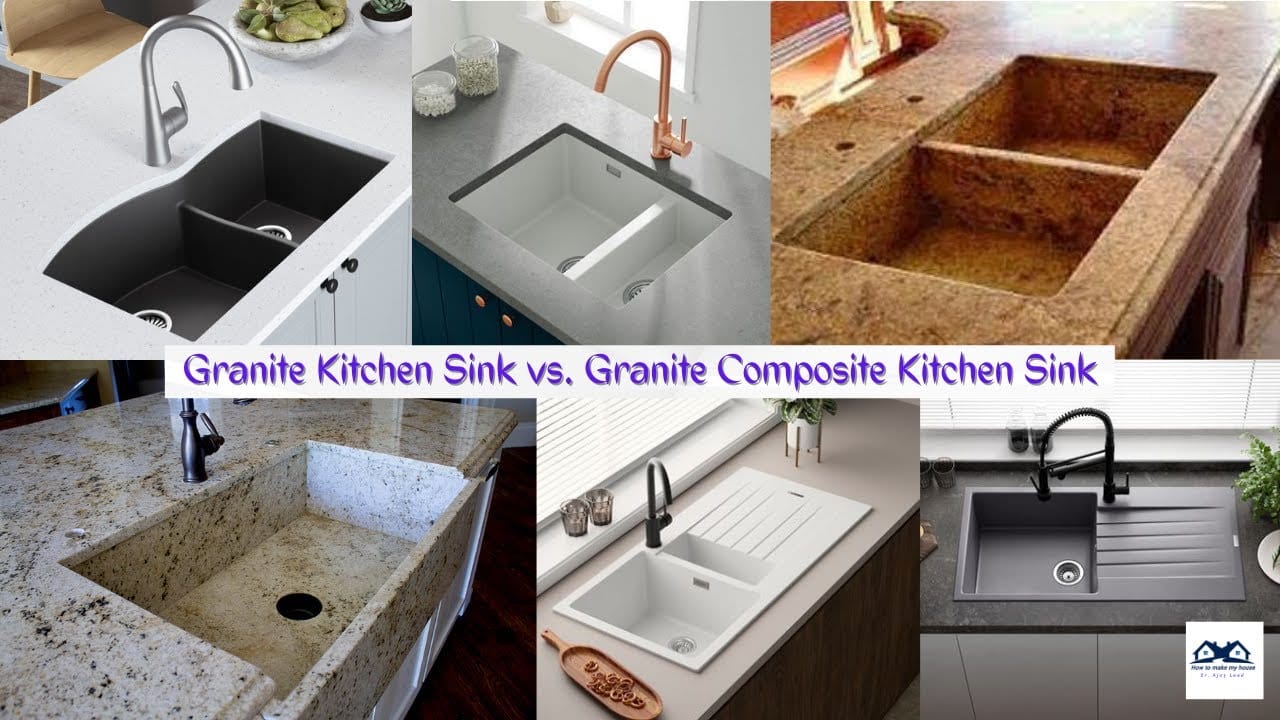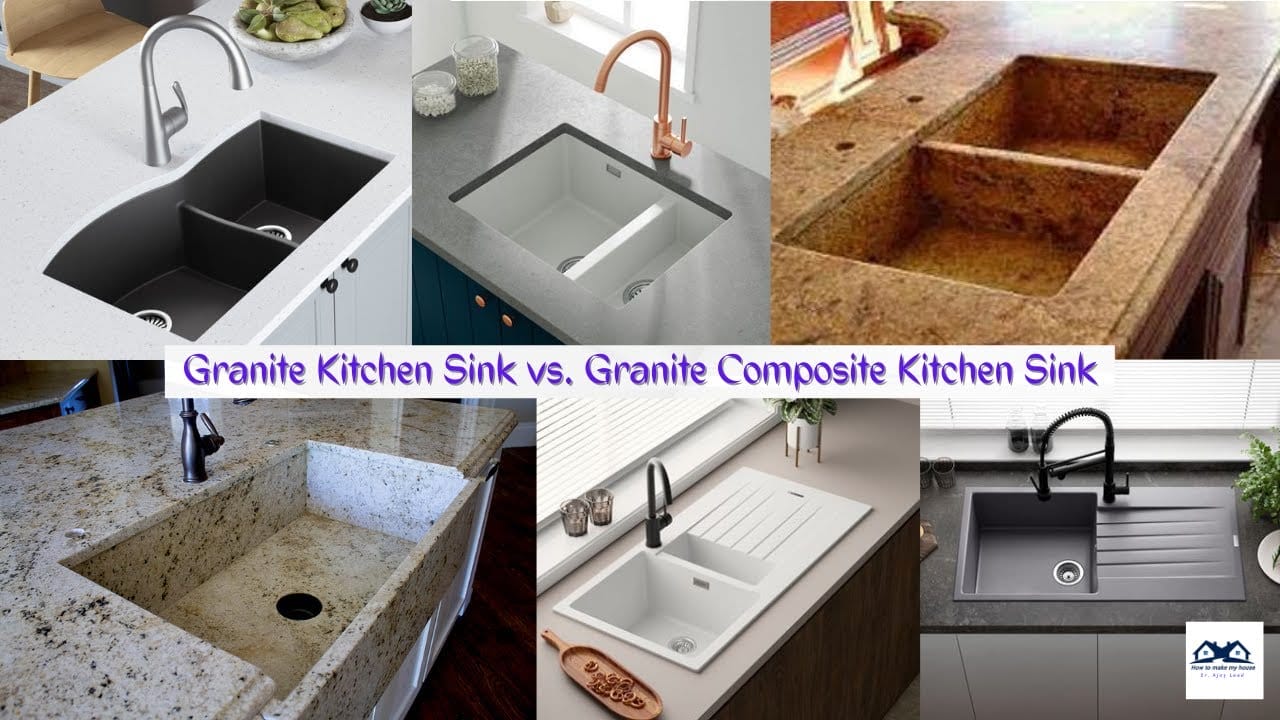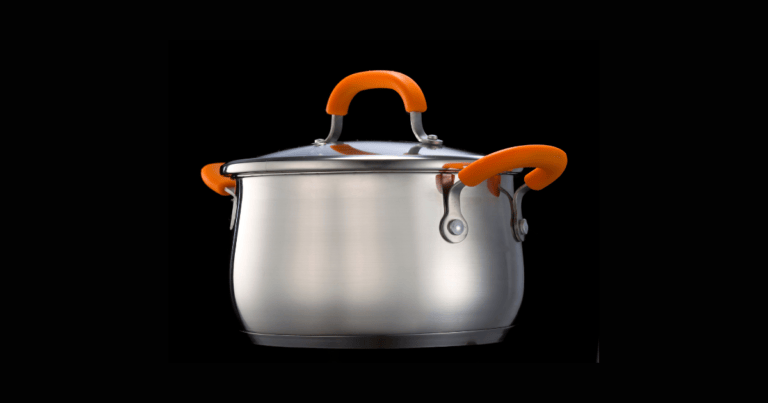
Are you renovating your kitchen and struggling to decide between a granite sink or a quartz composite sink? Don’t worry, you’re not alone!
Choosing the right sink for your kitchen can be a tough decision, but I’m here to help make it easier for you. In this article, we’ll explore the key differences between granite and quartz composite sinks, so you can make an informed choice that suits your needs and style.
When it comes to beauty and durability, granite sinks are hard to beat. Made from natural granite stone, these sinks offer a timeless elegance and a unique, organic appeal. With their striking patterns and textures, granite sinks become the focal point of any kitchen.
On the other hand, quartz composite sinks offer a more uniform and sleek look. Made from a blend of quartz, resin, and pigments, these sinks provide excellent durability and resistance to scratches, stains, and heat.
So, how do you choose between granite and quartz composite sinks? It ultimately depends on your personal style preferences and individual needs.
If you’re looking for a sink with natural beauty and a touch of luxury, a granite sink might be the perfect choice. However, if you prioritize durability, easy maintenance, and a sleek appearance, a quartz composite sink could be your best bet. Now that you know the basics, let’s delve deeper into the key features of each type of sink.

Granite Vs. Quartz Composite Sinks
When it comes to choosing between granite and quartz composite sinks, there are several key features to consider. Both materials offer durability and aesthetic appeal, but they differ in terms of maintenance and cost.
Granite sinks are known for their natural elegance and resistance to heat and scratches. On the other hand, quartz composite sinks are non-porous, making them resistant to stains and easy to clean. Ultimately, the choice depends on your personal preferences and budget.
Beauty of Granite Sinks
Granite sinks have long been admired for their natural beauty and durability. Made from solid granite, these sinks are known for their unique veining and color variations, which add a touch of elegance to any kitchen or bathroom. Granite is a natural stone that is heat-resistant, making it an excellent choice for busy kitchens where hot pots and pans are regularly used. Additionally, granite sinks are highly resistant to scratches and stains, providing long-lasting beauty with minimal maintenance.
When it comes to cleaning, granite sinks are relatively easy to maintain. Regular cleaning with a mild, non-abrasive cleaner and a soft cloth or sponge is usually sufficient to keep them looking their best.
However, it is important to note that certain acidic substances, such as citrus juices and vinegar, can potentially damage the surface of a granite sink if left for extended periods. Therefore, it is recommended to wipe up spills quickly to avoid any potential damage.
One of the standout features of granite sinks is their ability to withstand heavy use. Granite is a sturdy material that can handle the rigors of daily life in a busy kitchen or bathroom.
Whether you are washing dishes, preparing meals, or scrubbing pots and pans, a granite sink will hold up to the challenge. Its natural resistance to heat, scratches, and stains ensures that it will maintain its beauty even with frequent use.
The Versatility of Quartz Composite Sinks
Quartz composite sinks, on the other hand, offer a different set of benefits that appeal to many homeowners. Made from a combination of natural quartz stone and acrylic resins, these sinks provide a durable and versatile option for those seeking a modern, sleek look. The manufacturing process allows for a wide range of colors and styles, making quartz composite sinks a popular choice for contemporary kitchens and bathrooms.
One of the most significant advantages of quartz composite sinks is their non-porous nature. Unlike natural granite, quartz composite sinks do not require sealing to prevent stains and bacteria from penetrating the surface.
This makes them extremely hygienic and resistant to staining, making them an ideal choice for households with young children or for individuals who prioritize cleanliness in their daily routines.
Cleaning a quartz composite sink is a breeze. With their smooth, non-porous surface, these sinks can be easily wiped clean with a mild soap and water solution. Stubborn stains can be removed with the help of a non-abrasive cleaner and a soft cloth or sponge. Quartz composite sinks are also highly resistant to scratches, ensuring that they maintain their sleek appearance for years to come.
Another benefit of quartz composite sinks is their superior noise insulation. Thanks to the blend of natural quartz and acrylic resins, these sinks dampen sound vibrations, providing a quieter washing experience. This makes them a great option for open-concept kitchens where noise reduction is desired.
Granite Vs. Quartz Composite
While both granite and quartz composite sinks have their unique features, it is essential to compare them side by side to make an informed decision. Here are some key factors to consider when choosing between the two:
1. Durability and Maintenance
Granite sinks are incredibly durable and resistant to heat, scratches, and stains. They require minimal maintenance and can withstand heavy use without showing signs of wear. However, certain acidic substances can potentially damage the surface if left for too long.
Quartz composite sinks are also highly durable and resistant to scratches and stains. They are easier to clean and maintain due to their non-porous surface. However, they may be more prone to chipping or cracking if subjected to heavy impact.
2. Aesthetics
Granite sinks offer a unique and luxurious appearance with their natural stone veining and color variations. No two granite sinks are the same, making them a statement piece in any kitchen or bathroom. However, the available color options may be more limited compared to quartz composite sinks.
Quartz composite sinks provide a modern and sleek look with a wide range of color options and styles. They offer consistent patterns and colors, allowing for easier coordination with the overall design of the space.
3. Heat Resistance
Both granite and quartz composite sinks exhibit excellent heat resistance. You can place hot pots and pans directly into either sink without worrying about damage. However, it is always recommended to use heat-resistant mats or trivets for prolonged periods of exposure to high temperatures.
4. Price
Granite sinks tend to be more expensive than quartz composite sinks due to the cost of the natural stone material. Prices can vary based on the quality, rarity, and thickness of the granite. Quartz composite sinks are generally more affordable and offer a great balance between quality and price.
5. Noise Reduction
Granite sinks, being made from solid stone, possess natural noise-dampening properties. However, the impact noises can still be slightly audible due to the material’s hardness.
Quartz composite sinks have superior noise insulation, thanks to the blend of natural quartz and acrylic resins. They provide a quieter washing experience, making them a popular choice for noise-sensitive households.
6. Environmental Impact
Granite sinks are made from natural stone, which is a non-renewable resource. However, granite can be extracted sustainably, and some manufacturers offer eco-friendly options. Quartz composite sinks, on the other hand, are made from a combination of quartz and acrylic resins.
Quartz is an abundant material, and the use of resins can reduce waste in the manufacturing process. Look for manufacturers that prioritize sustainability and offer eco-friendly options.
7. Installation
Both granite and quartz composite sinks are typically installed as under-mount sinks, meaning they are mounted underneath the countertop for a seamless look.
The installation process may require professional assistance, especially when it comes to cutting the countertop to accommodate the sink.
Tips for Choosing the Right Sink
1. Consider your lifestyle and how you use your kitchen or bathroom. If you have a busy household and use your sink heavily, a highly durable option like granite may be preferable.
2. Take into account the overall design and style of your space. Granite sinks offer unique natural beauty, while quartz composite sinks provide a modern and sleek look. Choose a sink that complements your aesthetic preferences.
3. Set a budget for your sink. Granite sinks are generally more expensive than quartz composite sinks, so consider your financial constraints when making a decision.
4. Research different manufacturers and their environmental practices if sustainability is a priority for you.
5. Consult with a professional to ensure proper installation and to answer any specific questions or concerns you may have.
Remember, choosing between granite and quartz composite sinks ultimately comes down to personal preference and individual needs. Both options have their advantages, so take the time to evaluate your priorities and make a decision that will enhance your space for years to come.
Frequently Asked Questions
Welcome to our frequently asked questions section! Here, we will explore the differences between granite and quartz composite sinks to help you decide which one is the best fit for your kitchen. Read on to find answers to common questions that homeowners have about these sink options.
1. What are the main differences between granite and quartz composite sinks?
Granite sinks are made from solid granite, giving them a natural and timeless appearance. On the other hand, quartz composite sinks are made from a combination of quartz and acrylic resins, which provides durability and a wider range of colors to choose from. While both types of sinks are durable, granite sinks may require more maintenance to prevent staining and chipping, whereas quartz composite sinks are generally more stain and scratch-resistant.
Ultimately, the choice between granite and quartz composite sinks comes down to personal preference and the desired aesthetic for your kitchen. Consider factors such as style, maintenance, and budget when making your decision.
2. Which sink material is more resistant to stains and scratches?
When it comes to stain and scratch resistance, quartz composite sinks tend to be more durable than granite sinks. The non-porous surface of quartz composite sinks makes them highly resistant to stains, while the acrylic resins used in their construction provide additional protection against scratches and dents.
Granite sinks, although durable, may require regular sealing to prevent staining and can be more susceptible to scratching. However, it’s worth noting that proper care and maintenance for both sink types can significantly extend their lifespan and preserve their looks.
If you’re looking for a sink that can withstand heavy daily use and is more forgiving in terms of maintenance, quartz composite sinks are a great option. However, if you’re willing to put in the extra effort to ensure the longevity of a natural stone sink and are drawn to its unique beauty, granite sinks can be an excellent choice.
3. Which sink material offers more design options?
Quartz composite sinks provide a wider range of design options compared to granite sinks. Because quartz composite sinks are manufactured using a combination of quartz and acrylic resins, they can be created in various colors, patterns, and shapes.
This versatility allows homeowners to choose a sink that complements their kitchen decor and personal style. In contrast, granite sinks offer a more natural and classic appearance, with variations in patterns and colors that are inherent to the stone. If you prefer a sink that offers a bit more flexibility in design, quartz composite sinks provide a broader range of options.
Consider the overall aesthetic of your kitchen and whether you prefer a more uniform look or one that showcases the beauty of natural stone. Both options have their own charm and can enhance the overall design of your space, so choose the one that best aligns with your vision.
4. How does the cost of granite and quartz composite sinks compare?
When it comes to cost, granite sinks are generally more expensive than quartz composite sinks. The natural beauty and durability of granite come with a higher price tag due to the sourcing and manufacturing process.
On the other hand, quartz composite sinks offer a more affordable alternative without sacrificing durability or style. The exact price ranges can vary depending on factors such as the brand, size, and any additional features you may choose.
It’s essential to consider your budget when choosing between granite and quartz composite sinks. Determine what you’re comfortable investing in a sink and weigh that against the desired aesthetic and longevity you’re seeking. Remember, both types of sinks can last for many years with proper care, so make a decision that aligns with your needs and financial considerations.
5. Can you install granite and quartz composite sinks the same way?
Granite and quartz composite sinks can both be installed in a similar manner. They are generally undermount sinks that are attached to the countertop from underneath, creating a seamless look.
However, it’s important to note that due to the weight of granite sinks, additional support may be required during installation to ensure the sink is securely in place. Quartz composite sinks are typically lighter, making them easier to handle and install.
Whether you choose granite or quartz composite, it’s always recommended to consult with a professional for the installation process. They can provide guidance on the proper support and ensure the sink is installed correctly, giving you peace of mind and a well-functioning kitchen sink.
So, when it comes to choosing between granite and quartz composite sinks, there are a few things to consider. Granite sinks are natural, durable, and have a timeless beauty that can enhance any kitchen.
However, they require regular maintenance and can be prone to staining if not cared for properly. On the other hand, quartz composite sinks are engineered to be extremely durable, stain-resistant, and easy to clean.
They come in a wide range of colors and styles, but they may lack the natural beauty of granite. Ultimately, the choice depends on your personal preferences, budget, and the level of maintenance you are willing to commit to.






